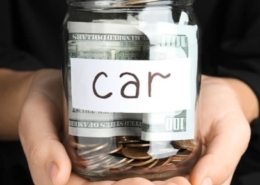Pros and Cons of Leasing a New Car, Truck or SUV
We’re all taught that it probably is if something looks too good to be true. So what does that mean for those deals you see advertised everywhere?
Can you drive a new Lexus, BMW, or Mercedes for $350 or $400 monthly? Or are these offers too good to be true?
Before you commit, take a look at some of the most common leasing pros and cons.
What are the Basic Leasing Pros and Cons?
You can have a new car with a low monthly payment if you’re willing to lease. But there are strings attached.
Leasing can be a good option, but it depends very much on your circumstances. Deciding if new car leasing is right for you requires a good understanding of both the leasing process and the pros and cons.
Here we’ll explore:
- Leasing basics – what the term means
- How leasing works
- The mileage factor
- The pros of new car leasing
- Leasing cons
- Who leasing works for (and who it doesn’t)
Leasing Basics – What the Term Means
You can think of leasing as a long-term rental. You’ll never own the car, but in exchange for a monthly payment, you can drive it as you want. (Within reason – drag and circuit racing are not approved!)
A lease deal is for a fixed term, typically 36 months. At the end of that period, you return the car and walk away. You own nothing after a lease, unlike when you buy a car and will own the vehicle at the end of the loan term. However, you’ve likely paid less per month than a traditional retail purchase would have cost.
Before you begin the lease or purchase process for a car, you still want to make sure you pay the lowest new car price for the vehicle you want to drive.
How New Car Leasing Works
Remember how cars lose 40 – 60% of their value in the first three years? Well, when you lease, you’re paying for that depreciation. You don’t pay for the car’s balance because you’ll take it back to the dealership at the end of the lease term. This is what lowers your monthly payment compared to buying.
Let’s look at a simplified example. Say you’ve picked out a smart coupe that retails for $30,000. After three years and 50% depreciation, it will be worth $15,000. So over the three-year term of the lease, you need to pay back that $15,000.
Of course, it’s not quite that simple. The leasing company (who buys and owns the vehicle on your behalf) effectively finances your use of the car, so you pay interest on the depreciation charge. And in addition, they’ll likely add in a few other fees. Typically this $30,000 coupe will cost around $475 per month to lease. On top of that, in most states, sales tax is payable on the monthly bill.
You can lower the monthly charge by making a down payment. In our example, if you put $3,000 down, you’re left paying $12,000 over 36 months. Add interest, and you’ll be looking at around $385 per month.
The Mileage Factor
When estimating what a lease car will be worth at the end of the lease, the company assumes a specific mileage (because mileage has quite an effect on value.) Typically they’ll calculate this residual value on 12,000 miles per year.
Higher mileage makes the car worth less than projected. Companies charge a penalty per mile driven over the limit to cover this lease, often around 25 cents. However, return the car after three years with less than 36,000 miles on the odometer, and you won’t get a rebate. That might seem unfair, but it’s just the way the system works.
New Car Leasing Pros
There are many advantages to leasing, although many will depend on your circumstances. The main ones are:
New car leasing pros:
- Drive a new car with a lower monthly payment versus financing.
- Drive a nicer car than you might otherwise be able to afford.
- Change your car every three years and get the latest features, styling, and equipment.
- Avoid unpredictable repair and maintenance costs because the vehicle will always be under warranty. (Some manufacturers even include free servicing for the first three years.)
- You will pay fewer sales taxes because it’s only due on the monthly payment and not on the car’s total value.
- A large downpayment, as might be required for a loan, is not needed.
- It avoids the hassle of selling the car when you’re ready to replace it.
- Tax advantages for business owners. This is a specialized topic, so if it might apply to you, ask your tax adviser for advice.
Leasing Cons to Consider
If leasing is so great, why isn’t everyone doing it? Leasing will not benefit everyone. There are many situations you may want to avoid using this option when getting a new car. Here are a few examples of why leasing a vehicle not be suitable for you:
New car leasing cons:
- More expensive overall. As a lessee, you bear the brunt of the depreciation and never reach that happy point after five or six years where it becomes minimal.
- Never build any equity. The buyer who takes out a loan to buy a car has something of value once the loan’s paid back. That’s not the case with leasing.
- Mileage restrictions. If your circumstances change and you’re driving more than expected, you could face a steep bill at the end of the lease period.
- The low mileage “penalty.” Drive less than the agreed miles, and effectively you’re overpaying for the vehicle.
- Wear and tear penalties are imposed. You will be charged for repairs or the loss in residual value if you return the automobile in lousy condition.
- Early termination difficulty. It’s hard and often expensive to get out of a lease early, though not impossible.
- Need good credit to score the best lease deals.
- Gap insurance on the vehicle is frequently required to offset that significant initial depreciation if the automobile is totaled.
Who Leasing works for (and Who it Doesn’t)
Leasing can be a good option if you like driving a newer vehicle, have good credit, and don’t cover many miles. This is especially true if you don’t want to put a large sum down at purchase and like the idea of low monthly payments.
If you’re focused on minimizing the total cost of your motoring and are happy to keep a car for a long time (say five years or more,) you’ll be better off buying.
If you finance the car, you’ll probably pay more each month than the person who leases, but in terms of the total cost, you’ll eventually come ahead. Likewise, leasing could be pretty expensive compared to buying if you’re a long-distance commuter.
Lease a New Car if You Want, but Understand the Conditions
Are you still wondering how you can get into a prestige car for a low monthly payment? These deals assume a low annual mileage, a sizeable down payment, and excellent credit. If you’re okay with those limitations, sign those papers.
However, buying the car outright through a retail installment contract probably gets the better deal in the long run.
Be a Savvy New Car Shopper
Beginning your car shopping online is the smart thing to do. Suppose you are going to lease a car or purchase a vehicle. You will still want to begin the process by finding the best possible new car price first. Most, if not all, dealerships look at online car deals as “high volume – low profit” transactions. This means you will get your best price by contacting them online.
Do yourself a favor and make online car shopping the way you buy your new car. For more hints and tips on navigating the new and used car buying process, spend a little time upfront before beginning your car leasing journey by browsing the rest of my website AutoCheatSheet.com.
Once you’ve figured out your budget and are ready to start shopping for your next car, look at my “New Car Buying Guide” for insider tips and secrets on getting the best price on a new vehicle and avoiding dealer scams.
I recommend using an online referral service such as Ryde Shopper, Edmunds, or Motor Trend before visiting a car dealership. Their free online price quotes will automatically include any discounts or cash-back incentives currently available in the marketplace.














